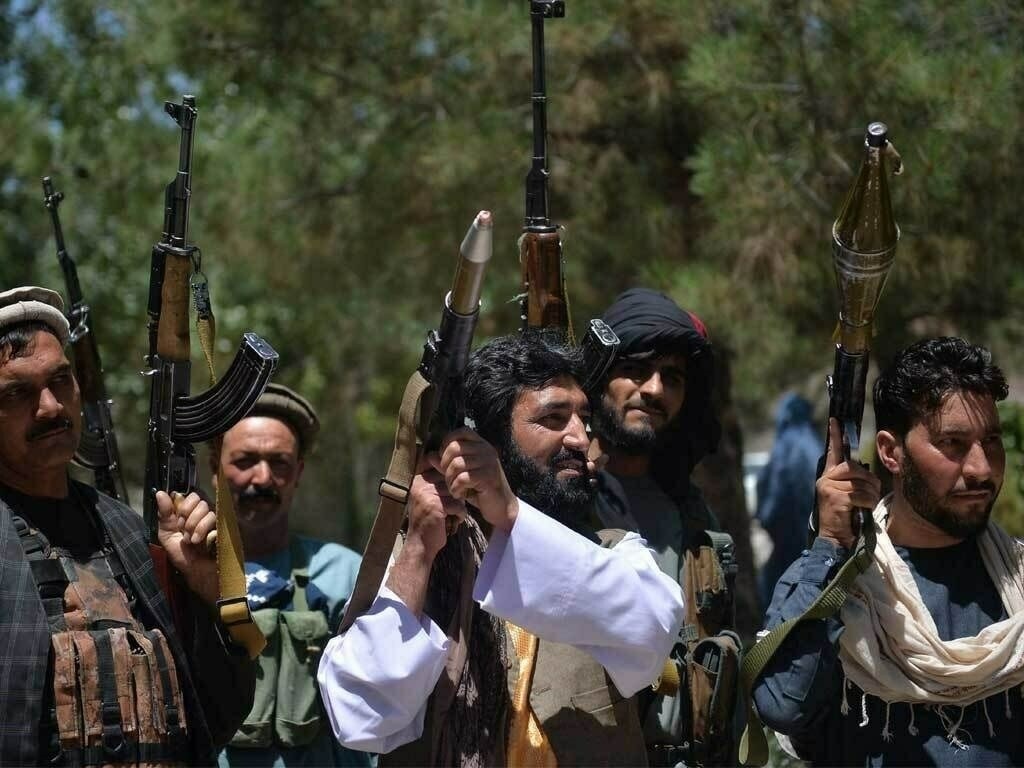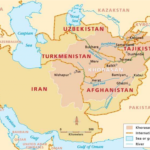From the January 17th missile attack from Iran on Jaish-ul-Adl camps to the significant uptick in insurgent and terrorist violence in the province, 93 attacks in January alone, 2024 proves to be a bloody year for the Baluchistan province. In response to Iran’s missile attack, Pakistan launches 7 strikes inside Iran on Baluchistan Liberation Army (BLA) camps, which brought a short-term diplomatic freeze in relations and an escalation on both sides that required international players to step in to cool tension before another escalation took place in the region. Iranian Foreign Minister, Hossein Amir-Abdollahian’s visit to Pakistan helped to bring things back under control, allowing some return to normalcy of diplomatic relations with the return of ambassadors to their duty stations.
Sadly, none of this had any effect on the terrorist and insurgent activities in Pakistan. The month of January alone saw 93 terror attacks in Balochistan by the BLA’s Majeed Brigade and the Baloch Raji Ajohi Sangar (BRAS) Group, not counting the continued guerilla attacks across Khyber Pakthunkhwa (KP) by the Tehreek-e-Taliban Pakistan (TTP) and the Islamic State – Khorasan Province (ISKP). The month of January served as an indication of what 2024 held in store – bloodshed and more bloodshed.
While many observers have blamed the spike in attacks on the BLA & ISKP resistance to allowing elections in Balochistan, the past month’s attacks did not carry an anti-democratic tone. Rather, it reminded many of the same signs of TTP attacks in Khyber Pakhtunkhwa, which would build a base to carry out more lethal attacks on law enforcement agencies and security forces to extract commanders and fighter from detention facilities. The attacks in Balochistan in the last week of January did exactly the same for the BLA, specifically the attack on Machh Jail, where numerous senior commanders and experienced fighters were held in detention.
Operation Marg Bar Sarmachar (Death to Insurgents), launched by the Pakistan Army after the attack on Machh, killed 26 members of the most lethal arm of the BLA, the Majeed Brigade, was seen by many as a tacit response to a sheer blitzkrieg that Balochistan received from the BLA.
Understanding the BLA
The BLA is not an independent insurgent group, as many would attempt to portray them. They are a well-funded, heavily supported, well-trained group with the singular objective of stripping Balochistan from Pakistan, much like Jaish-ul-Adl’s objective to strip Sisten-e-Balochistan from Iran, and form a Free Balochistan. They also have a significant support base of both domestic and international human rights activists, who have made the “Baloch missing persons” a staple of their narrative. For context, of the 26 insurgents killed from the Majeed Brigade in the Pakistan Army’s operation, 10 of the names were listed among the Baloch missing persons lists distributed by these same human rights activists.
The BLA has support from both the Marri and Bugti tribes of Balochistan, both hold significant territory, natural resources and the ability to push fighters into contrition with the BLA. They also contribute finances, safe haven, weapons and fighters to the BLA to facilitate them in their stated objectives. The support of both these tribes is both domestic and international, where members of the families living in self-exile campaign, fundraise, approach foreign governments and intelligence agencies, and facilitate the procurement of weapons to the BLA camps in Afghanistan, Balochistan and Iran.
Afghanistan’s Role
Afghanistan, post-Taliban takeover, hasplayed a significant role in assisting in the expansion of the BLA in terms of members and intensity of attacks. Understanding that pre-Doha Accords, the Taliban was opening running a shadow government during the US occupation, heavily facilitated by anti-Pakistan groups, who when the Taliban took control after the US withdrawal, the support base sigificantly expanded due to the Taliban’s need to counter a growing ISKP threat to their own government. In turn, ISKP also built in-roads into the same groups and expanded its own footprint inside Afghanistan and Pakistan to strenghten themselves to challenge the Taliban for leadership of Afghanistan in 2024.
The Taliban’s unwillingness to take action against terrorist and insurgent groups on their side of the border has soured relations for them across the region, while giving ISKP additional support among the same groups.
Idelogically, the Taliban gains no benefit from supporting these groups, as their sole objective is governing Afghanistan, but to be able to hold Afghanistan, they have provided safe havenm, weapons, and material support to the same groups that target Afghanistan’s neighbors, making them a pariah state. Whereas ISKP’s ideological objective is the establishment of the Khorasan Khalifat, which spreads from Pakistan to Uzbekistan, which further supports the ISKP actions in Afghanistan, including the recruitment of Pakistanis, non-Pashtuns, unable to find a place in the Taliban’s Afghanistan, Hazaras, Farsi-speakers, Tajiks, Uzbeks, Urghur Muslims, and other groups who are unable to find synergy with the Taliban, simultaneously providing massive support to terrorists and insurgent groups, who attack Pakistan, Iran, China and the Central Asian Republics (CAR). Afghanistan plays a central role in the destablization of the region as a whole, as it moves toward a militant civil war itself.
In terms of ISKP, ideologically, they have fully-embedded themselves in Afghanistan, much like the Taliban did during the US occupation. They have successfully established themselves as the counter-force to the Taliban, drawing numerous dissenters from the Taliban, al-Qaeda and their affiliated groups, such as the TTP and its 16 splinter groups. They have become a truly viable contender to the Taliban for control of the Afghanistan government.
BLA’s Ultimate Objective
When studying a group like BLA, it is easy to understand their core objective will only be achieved if they are able to derail Pakistan-China relations, as China is viewed as the usurper of Baloch resources by supporting the Baloch oppressors, who are painted as the Government of Pakistan, the Pakistan Army and its law enforcement agencies. Gwadar, being the starting point of the China-led China-Pakistan Economic Corridor (CPEC), tying into the One Belt One Road (OBOR) initiative which spans across the region, is a core target for the BLA, ISKP, TTP and all anti-Pakistan groups operatinv from Afghanistan’s soil.
If we consider attacks carried out in Gilgit-Baltistan (GB) and Balochistan, they are slowly increasing their targeting of CPEC projects. This especially significant because the security of CPEC is the responsibility of the Pakistan Army. To weaken the integral coordination between the Pakistan Army and China will deal a significant blow to Pakistan-China relations, which had already taken damage after the Mastung and Dasu Dam attacks on Chinese citizens. China, at one point, threatened to dispatch its own People’s Liberation Army (PLA) to Pakistan to protect Chinese workers and investments.
This is also the reason the BLA is heavily supported by Indian intelligence and, many believe, the United States, to weaken China’s hegemonic objectives in the region and their attempt to replace the United States as the imperial super power. Targeting Gwadar and CPEC have also raised eyebrows within Pakistan’s own security establishment due to both Kulbashan Yadhav, a serving Indian Navy Commander based in Chabahar, Iran arrested in Balochistan, who admitted to overseeing terrorist activities in Pakistan for India’s intelligence agency, RAW; and the Chabahar Port itself, which Gwadar is direct competition. This belief gained additional traction in Pakistan, after the G-20 conference where the India-Middle East-Europe Corridor (IMEC) was announced, a clear attempt to strategically weaken Gwadar and minimialize the Chinese investment into Pakistan and the region.
The Next Six Months
It is clear the BLA and affiliated anti-Pakistan groups will further increase their attacks in both Balochistan and Khyber Pakhtunkhwa over the next six months, based on the January escalation. Pakistan and its armed forces eroded domestic and international support with the massive post-electoral manipulations to bring their chosen political parties to power, which will lead to more political and economic instability. With foreign governments and media organizations, as well as the Pakistani diaspora, demanding investigations into the election and not recognizing the government in Islamabad until the investigations are completed, puts Pakistan on course to become the next Afghanistan, shunned by the world community.
It has also given the terror and insurgent groups a new platform to further damage public opinion in a “Western” democracy and a military that will not reliquish control of the country to the people. ISKP has a long established narrative against democracy and “religious” democratic parties, which will gain additional support due to the February 8th elections. ISKP, after a massive suicide attack on a Jamiat Ulema Islamia – Fazl ur Rehman (JUI-F) political rally in Bajaur, published a 198 page book explaining why JUI-F is both un-Islamic and a legitimate target for attacks. A government with a highly questionable mandate, a powerful military unwilling to reliquish power, increasing attacks in FATA and KP by TTP and ISKP, and increasing attacks in Balochistan by BLA and all the anti-Pakistan groups, spell disasterous consequences for Pakistan, a nation already struggling to find peace and stability. It is not unrealistic to believe certain Western powers may demand Pakistan’s nuclear assets be turned over, protected by or better secured, by someone who they can trust, as the next six months will be crucial for Pakistan’s survival, both economically and as a nation itself.
Syed Khalid Muhammad, the Founder and Executive Director of CommandEleven, brings over three decades of leadership experience, guiding organizations globally in the realms of security, technology, marketing, and management. Notably, he authored "Agency Rules: Never an Easy Day at the Office," a pioneering espionage novel published in 2013. This novel holds historical significance as the first English-language espionage novel written by a Pakistani, achieving international bestseller status and currently available on Amazon.
Furthermore, Syed Khalid Muhammad has made notable appearances on several international TV channels, providing insightful analysis on security and geopolitics.
Since the establishment of CommandEleven in 2015, Khalid has expanded his expertise to encompass analysis, risk and threat assessment, and consultancy in the fields of terrorism, counter-terrorism, counterintelligence, geopolitics, and cognitive warfare. Within CommandEleven, he has successfully cultivated a comprehensive human and electronic intelligence network spanning the Indian subcontinent. Continuously growing, this network extends into various conflict zones globally, providing CommandEleven with actionable, real-time intelligence that forms the foundation of its analytical endeavors.
CommandEleven currently serves multiple clients, including corporate giants, by assisting them in analysis related to security, threat assessment, and threat mitigation strategies in Pakistan and Afghanistan.









